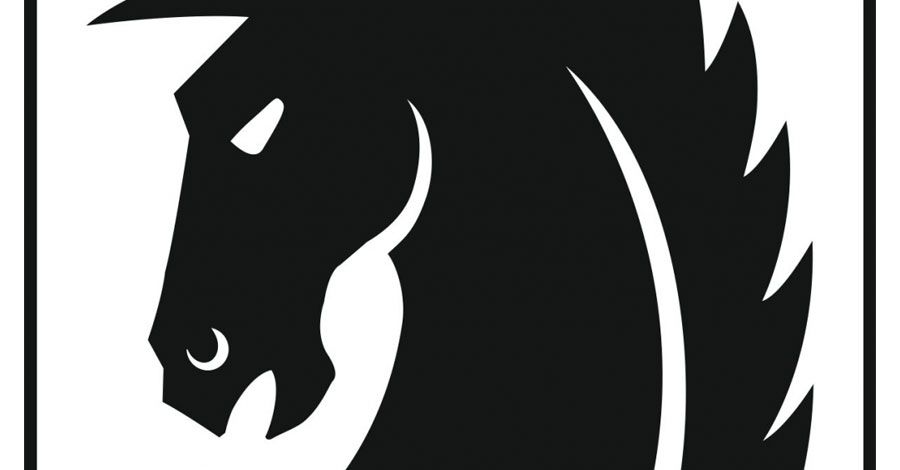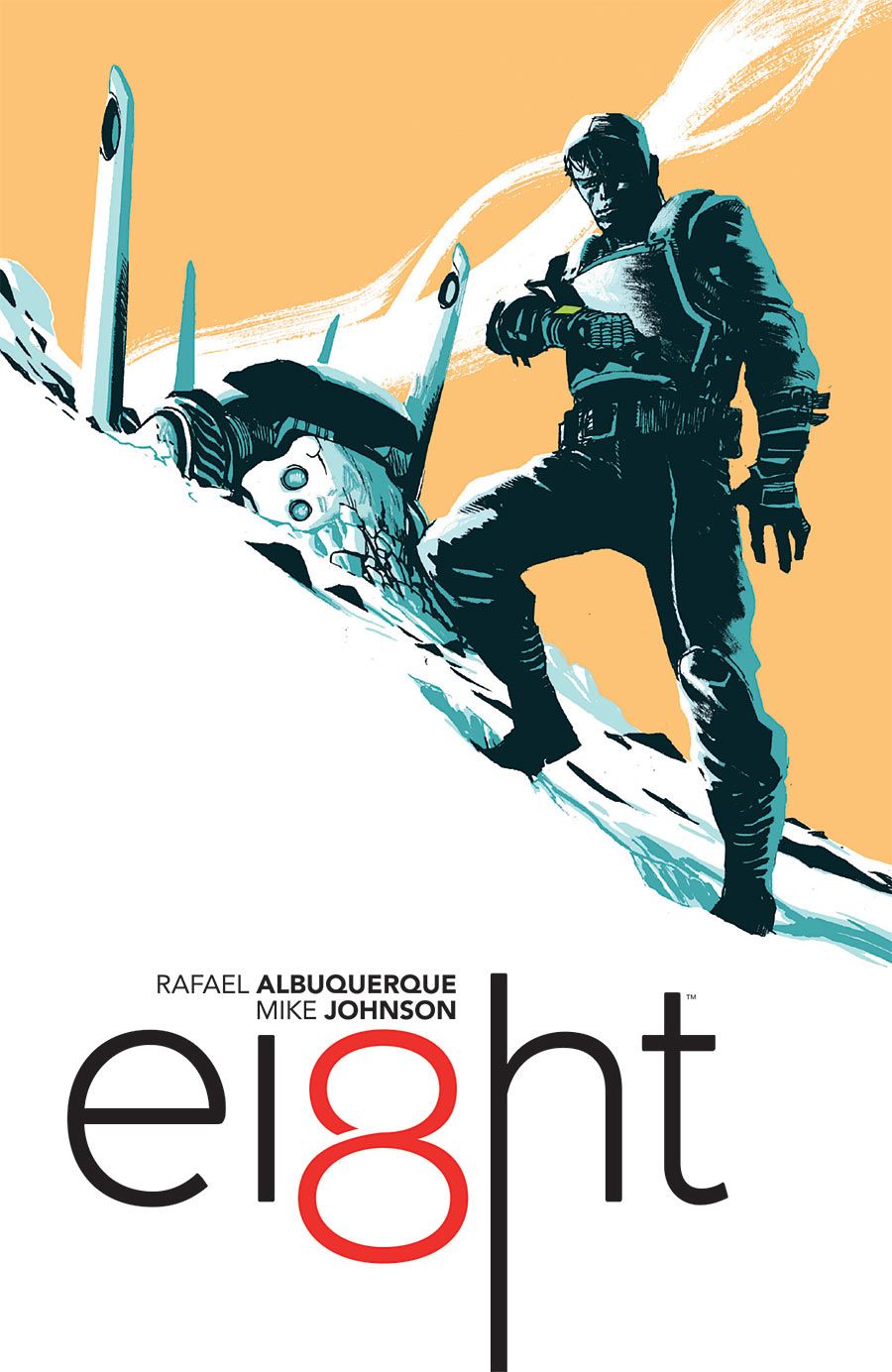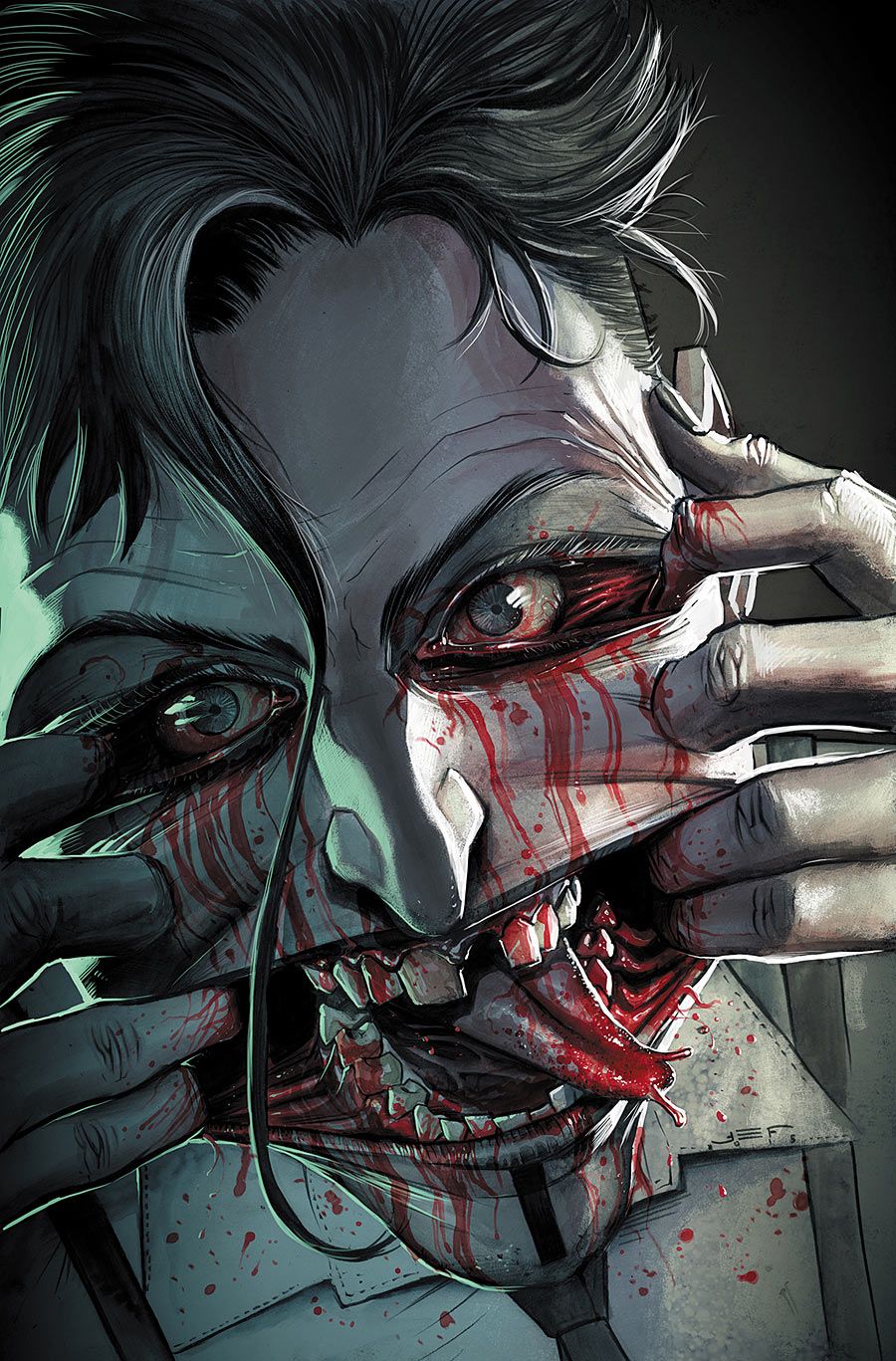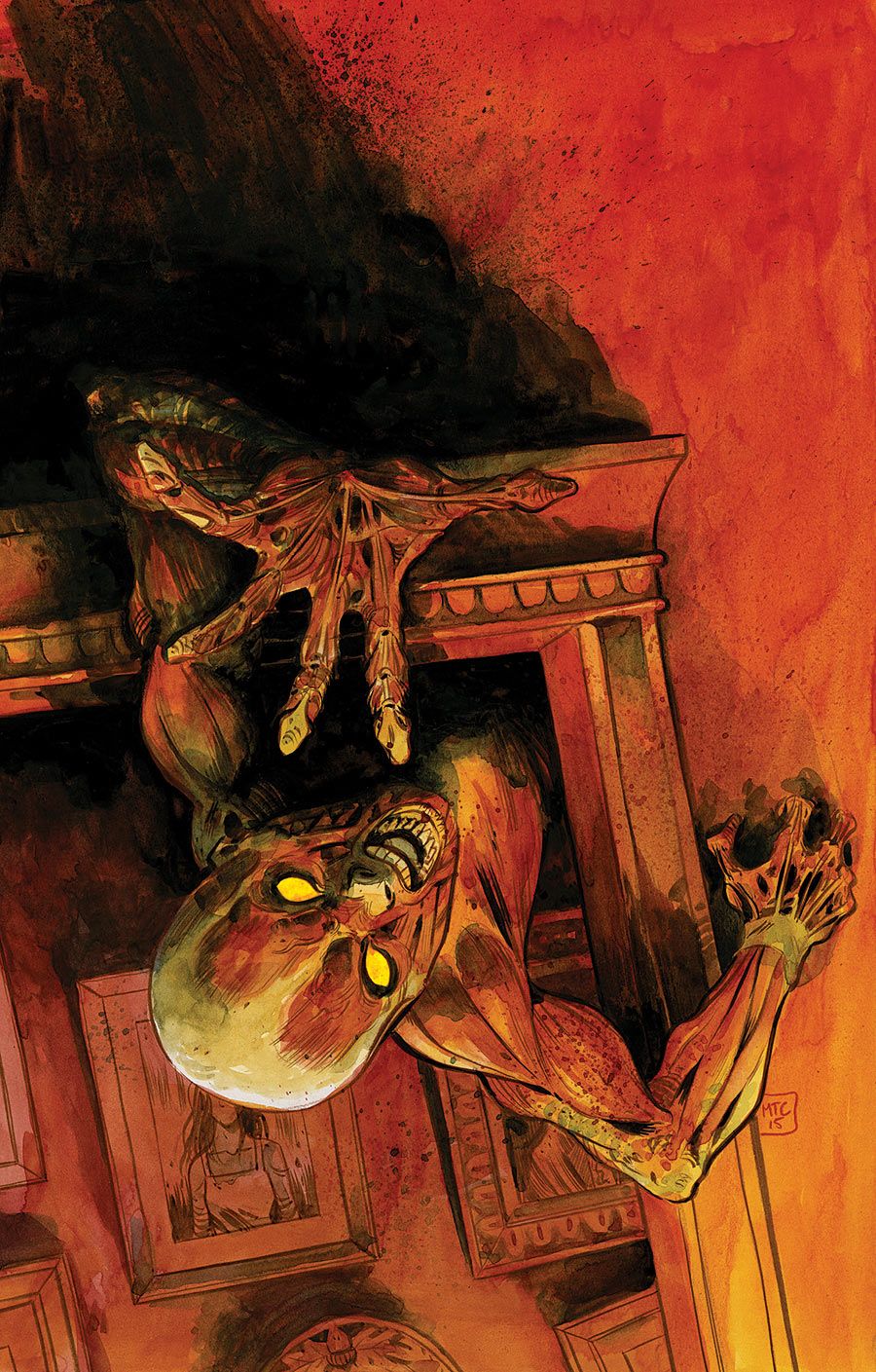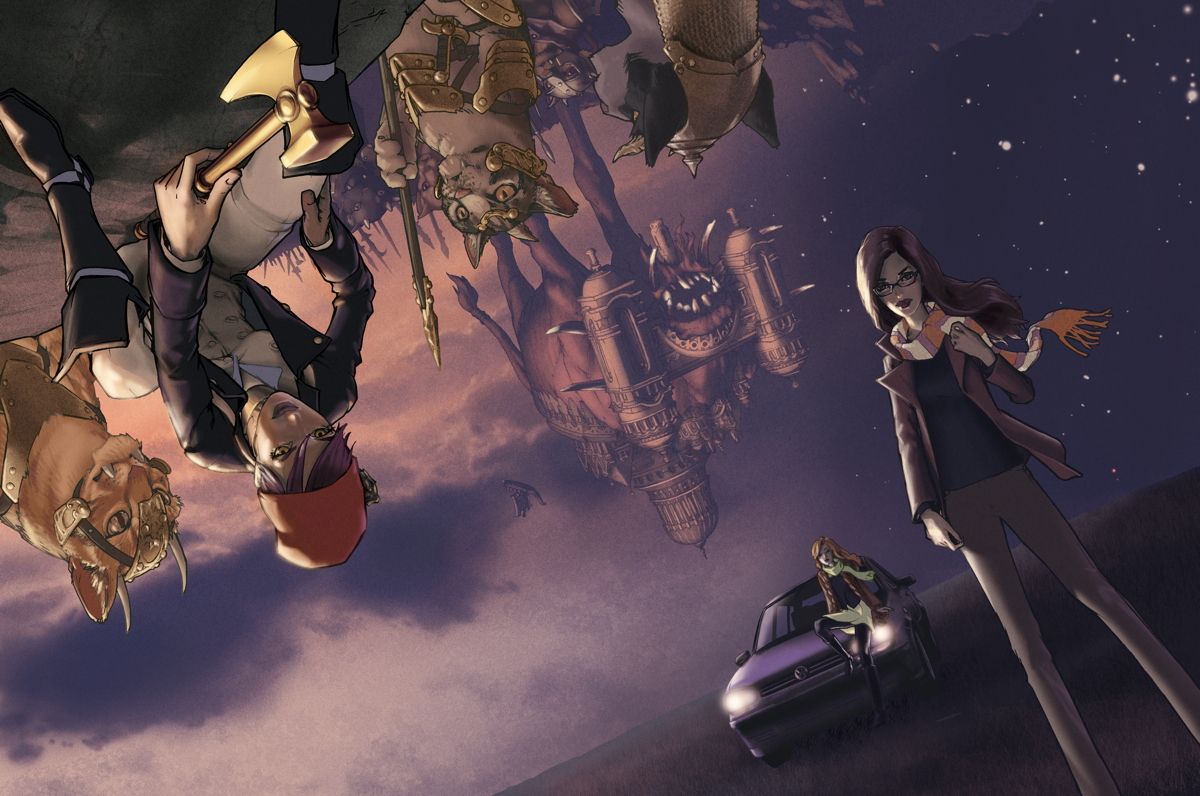Right at noon on the first full day of Comic-Con International in San Diego, the creators behind a number of Dark Horse Comics' forward-thinking independent series' gathered in a meeting room to run through what's in store for the publisher. Among those in attendance were Dark Horse president and publisher Mike Richardson, as well as creators Rafael Albuquerque (EI8HT), Cullen Bunn (Harrow County), Joëlle Jones (Lady Killer), Paul Tobin (Colder) and Gene Ha (Mae).
The discussion kicked off with a spotlight on Jones' "Lady Killer," noting that the first issue has sold out. "The first series is about a 1960s housewife that also has a secret life as an assassin," explained Jones. "It's about the struggles she has to deal with." Some interior artwork from the first few issues was shown, as well as the covers for the last three issues. It was announced that a second series from Jones is on the way, with early 2016 as the targeted release date.
"They are moving to Florida," said Jones of the next volume. "The lead character is going to try to start a business of her own in Cocoa Beach."
Albuquerque then talked a bit about "EI8HT," calling it an "adventure story with time-traveling. Joshua is a time-traveler and he was sent to a weird place in time, and his mission is to kill someone. But he has this radio that communicates with him and it's a mysterious voice that kind of leads him into something else. The big question is finding out who is this voice that makes him become a hero."
The Eisner-award winning "Bandette" came up next, with writer Tobin calling the lead a "teen thief." "She's one of the borderline good characters," said Tobin. "She'll steal anything she wants but she has a sense of justice. My wife Colleen Coover, the artist, we wanted to make as charming a comic as possible. We wanted something relentlessly fun."
But Tobin isn't all fun and games, as evidenced by his series "Colder." The writer talked about the series, saying that he wrote it because he's fascinated with insanity. "It truly is a different viewpoint," he said. "It's a totally different world that they're seeing. The title references a guy who was part of the early LSD experiments, back when they were testing it on insane asylum patients. It drove a lot of people insane and killed a lot of people. When our lead character took it, it opened up a world, the Hungry World. It's about hunger and insanity. We make it as unsettling as possible." The next series of "Colder," the third one, will be the final one and it arrives in September.
Dark Horse announced that Tobin has a new series coming out in December called "Mystery Girl." "My love of mystery stories, but mystery stories have a set way of looking at them," said Tobin. "Usually the crime starts when the detective assembles clues and solves the mystery and that's the end. 'Mystery Girl' is a totally different kind of book. If you tell our lead character a mystery, she can solve it instantly. The series deals with the ramifications of solving those mysteries. Stories are so often the hero saving the day and then it ends, but lives continue after the solutions of mysteries and sometimes what happens after is a bigger story."
Gene Ha's Kickstarter-funded series "Mae" came up next, with the creator talking about the wild success of the book's campaign. He also lamented having to deal with all the production aspects of the book, and thanked Dark Horse for coming in and picking up that slack so he can get back to the drawing board. "Mae" will launch next summer, and it is the story of two sisters from Indiana. "The older one mysteriously disappeared and she comes back when the younger sister has to pick her up from the sheriff's office," said Ha. "The older sister says she's been in another world and it's hard to believe her, until the monster's start following her back to Indiana."
Dark Horse president Mike Richardson spoke about "47 Ronin," his Eisner-nominated collaboration with artist Stan Sakai. "It's about Japanese culture, honor and the Bushido code," said Richardson.
Cullen Bunn's "Harrow County" came up next, with the presentation noting that the series is selling out in comic shops. The panelists spoke about the new TV deal that has seen "Harrow County" optioned for adaptation into a television series. "We're excited about the deal," said Richardson.
Bunn spoke about the book, saying that the book is the most personal thing he's written. "It's the truest to who I am as a writer," he said. "We call it a southern gothic fairy tale. It's the story of Emmy, who lives in the backwoods of North Carolina who knows she's surrounded by ghosts and goblins. On the eve of her 18th birthday, she discovers she's more connected to these things than she ever imagined. Her world is turned upside down and she has to go on the run. For a book with a bloody cow skull on the cover, I think it's one of the sweetest books I've written."
"I want to add in that the people sitting up here, we get to choose who comes on these panels, and all the books you see here are exceptional books by exceptional creators that deserve to blow up," said Richardson. "We wanted to take the opportunity for everyone to see them and hear from them."
When asked about their research process for writing, Richardson noted that he based it on a Japanese story. "It says so much about their culture," he said. "I learned about it when I opened my first retail store. It's about a group of samurai who disgraced themselves in order to restore their master's honor. They go through a horrible journey to get there but they do. You have to read the story; it's a true story. There are about five thousand tv stories about this, I've watched them all. I sorta combined them all into one. Lots of research and reading." Richardson noted that he's traveled to Japan to see the sites from the legend as well.
Tobin said that while he loves researching, he said he doesn't write too much historical fiction. "You could put too much research into your story and end up deadening it, it can kill things," he said. "I really enjoy being a writer, but most of my artists are working on one book while I'm working on a bunch. I will research the fashion, building and technology of the time and put that in my script so the artist doesn't waste their time doing that. Most online or books want to tell you fashion of this time period, showing you what kings would wear but you rarely write stories about kings -- at least me. What would an average person in 1720 wear? That's the kind of research I do."
Jones' "Lady Killer" takes place in 1962, so she said her research included collecting "stinky old magazines." "I really enjoyed all the research," she said, noting that she spent time looking at house ware and maps of neighborhoods from the era. She said she resisted having characters talk about big headline events of the era as well.
"It depends on the book I'm working on," said Bunn. "More often than not I do just enough research to make it look like I've done a lot of research. With 'Harrow County,' my research was that I grew up in the country. I had an uncle who would tell me stories and these tall tales. My dad would tell stories about the time he saw a ghost. At the end of issues, we publish essays of 'real' things that happen, like my dad and his ghost story. Like when I was a boy, I looked at our house and a man crawled out from under it, picked an apple from a tree, and then crawled back under our house."
Albuquerque cited real life mysteries like Stonehenge or the Bermuda Triangle that he wanted to try to explain through "EI8HT." "We do a lot of research and I don't think it's too present in this first arc, but possibly in the second one," he said. "We try to be accurate as much as we can. We want to bring these interesting facts in to move the story along."
Ha said research isn't about getting every little detail right, but instead trying to get the general feel right. "I'm writing a book about teenage girls and I've never been one, so I'm asking friends daughters and asking them if things feel right or if there are things I can add in," said Ha about "Mae." "I want it to feel like real people in a fantasy story."
With the floor opened up for questions, an audience member asked if they had plans for more historical comics. Richardson said that there are more on the way, but they can't talk about them yet. Tobin said he doesn't like telling straight historical stories, but "generally when I write historical events, I try to have them be in the greater scale and then focus on what characters are doing during them -- like what was life like during World War I?" Richardson then noted that they did publish "The Fifth Beatle," about the Beatles' manager Brian Epstein.
Bunn was asked about the status of "Harrow County's" adaptation, stating that it's being eyed for TV. Richardson concurred, saying that the book was optioned just after the release of the first issue -- they didn't have to shop it around. Bunn noted that the studio wants him involved in the adaptation, but that he most likely won't write the screenplay for it. Richardson said that Bunn will definitely be involved, and stated that in the past, they've had the comic book writer sit down with the pilot writer to discuss ideas.
When asked about jumping from being an artist to a writer/artist, Jones said she created "Lady Killer" in order to see a story that she wanted to see on the stands. Albuquerque also said he doesn't see himself as a writer, saying it doesn't come as naturally. "I'm pushing myself and learning and enjoying it as well," said Albuquerque.
A "Ghost" fan asked if there was more in store for the character and the rest of the Project Black Sky line, and Richardson confirmed that they will be back -- albeit possibly in a more individual way and not completely entrenched in the larger Project Black Sky initiative.
Tobin asked Albuquerque and Jones about their writing process. He noted that as his wife Coover tries her hand at writing, she will write full scripts for herself to illustrate -- and then curse out the writer when she starts drawing it. Albuquerque said that's happened to him before, adding that he has done short stories without a full script before. Jones said she will drink a pot of coffee and write a script really quickly and then change it as she draws it.
Richardson closed out the panel by stating that he created Dark Horse to give creators an outlet to own the comics they created, and he noted that the panelists on this panel are great examples of "what Dark Horse is about. We do other kinds of books also, but this is what Dark Horse is about."

